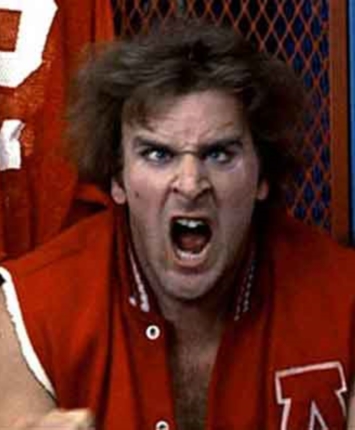
In an age where jocks wear T-shirts with Iron Man on them, and mainstream audiences pack theaters to watch three-hour adaptations of the Hobbit, the world has become a very different place for geeks over the last few years. Somehow, geekdom has become as mainstream as American football.
So Mike and Casey have posed the question to our listeners on the latest installment of Radio vs. the Mailbag: “What was the turning point that pushed geek culture into the mainstream of popular culture?”
We dig into your answers, and put the question to recent panelists Sam Mulvey and Roslyn Townsend to give us their thoughts on the matter.
And finally, Mike and Casey make an earth-shattering announcement that will forever change this podcast! Listen….if you dare!
Podcast: Play in new window | Download

If being a geek is about loving things the most, geeks/nerds should call ourselves lovers 🙂
There are all kinds of cultural touchstones that allowed geek culture(s) to seep into the mainstream. Star Trek was certainly one as were the summer box office successes of Jaws and Star Wars. Star Wars is thought of as the more geeky of the two, but Jaws was really the first super big summer box office hit that EVERYONE had to see. Star Wars built on that and helped recreate movie franchises. (Franchises were staples of movie companies in the 30s, 40s and 50s so when you talked about Hugh Jackman having played a single character more times than any other actor, that discounts such actors as Basil Rathbone as Sherlock Holmes or Warner Oland as Charlie Chan, etc.) Star Wars I think is a pop cultural cornerstone and showed that movie geeks and science fiction/fantasy geeks could find a meeting point alongside a more general audience.
One thing I don’t remember you mentioning, and it precedes the Internet, was cable TV in America. (I can’t really speak to it outside of my native country). It too broke down what until then had been the homogenizing effect of network TV in a way that public TV or UHF channels really couldn’t. With cable TV, niche channels became the norm. Suddenly, comedy channels, cartoon networks, music stations, sports and science fiction channels, etc. sprung up. Then, little by little, as people sampled different aspects of geekdom, barriers began to break down.
Some of it was nostalgia driven. Adults could find the Saturday morning cartoons of their childhood and either enjoy it by themselves late at night after everybody else went to bed or, at other times, share these older programs with their children. Some of it was culturally driven. MTV had been primarily for white male audiences who liked various rock, but then Michale Jackson’s Thriller came along and those videos broadened the audience into more African American styles of pop. Later, such programs as The Simpsons and, as you mentioned, Buffy broadened the audience of their niche-type programs even more.
I just listened to the episode. Even when I found myself disagreeing with one of the opinions, I can’t say those opinions were wrong. Everyone had good reasons for the position they held.
I’ll just add my $.02 here, and it’s reasonably brief.
Geeks are people whose hobbies come with homework. Lots of homework. That can be anyone from early-adopters of computing to hardcore comics/RPG fans to sports card collectors. I’d even include people who build workable model airplanes from scratch. We have hobbies which involve deep immersion in an arcane topic that other people just don’t get.
What this means, I think, is that while being a geek no longer carries the stigma it did when my generation was young, it still isn’t mainstream to BE a geek. It’s mainstream to consume the products of geek culture, but that’s really not the same thing. Watching Marvel movies or using an iPhone requires no homework. Appreciating the Easter eggs buried in the Marvel movie, or being able to comment intelligently on the elegance of an app design…those involve homework.
Great episode, everyone. And thanks for keeping on.